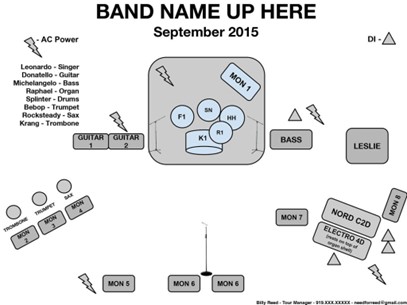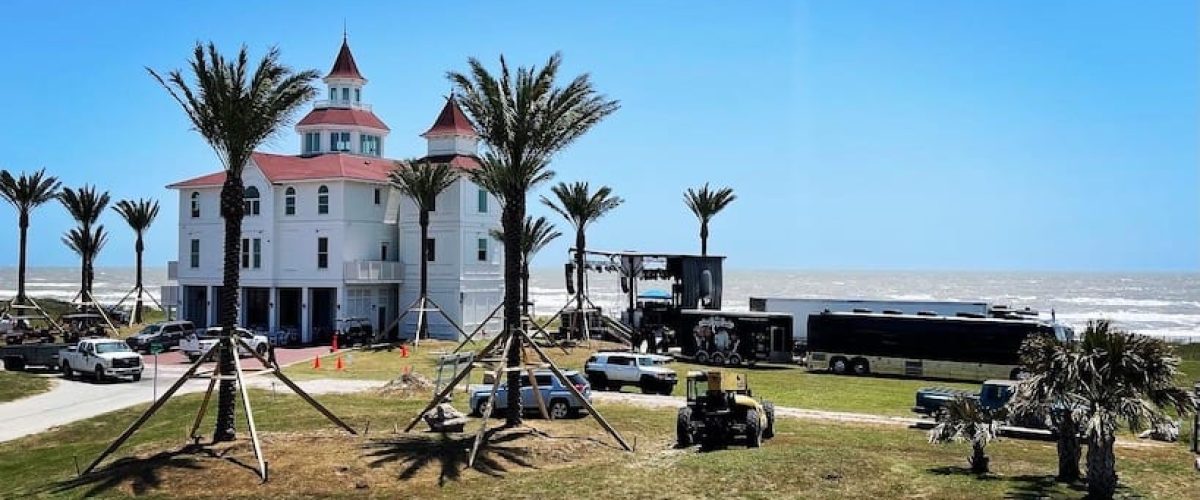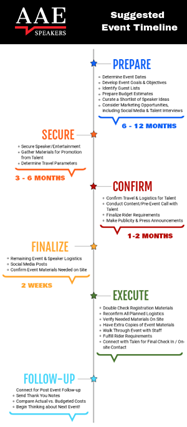Besides the work of finding artists, negotiating deals, and handling the contractual side of talent booking, let’s look at the nitty gritty of the logistics of booking talent. When it comes to handling the logistical side of talent booking, it’s important to have a keen eye for detail when managing aspects such as scheduling, travel arrangements, and technical requirements. Whether you’re planning a small event, or a large festival, managing the logistics is a crucial part of ensuring the event runs smoothly, and that the talent performs at their best. Below are some aspects to consider when handling the logistics of talent booking, and some tips on how to produce the most successful events.
Handling the Scheduling Aspect of Talent Booking
One of talent booking’s key steps in coordinating the logistics is considering the scheduling of the talent. When will the event be, what time will the artist perform, how long is their set length, and what time sound check or rehearsal will be held, are all questions to be answered when coordinating an event and booking talent. The size of the event, and whether or not there are multiple acts on the lineup, are other factors to consider, as well, and may affect how you choose to arrange scheduling.
In addition, coordinating with the venue’s availability may cause other challenges to arise. Putting all the pieces together, and making sure all event details are understood before solidifying the schedule is vital. As the talent booker, you are acting as the middle-man between the artist and the event organizer/venue, and are communicating with every player involved in the event, including the concert promoters, venue managers, festival organizers, ticketing services, tour operators, and other relevant organizations.
Being a clear and effective communicator is necessary when handling all these different parties, and clearly communicating the scheduling of the event is central to running a smooth event. When talent booking, be prepared to wear many hats and juggle multiple tasks, as coordinating scheduling and general planning needs can require you to take on different roles.
Finding dates and times that work for both the artist/artists, and event organizers/venue, or any other parties involved, can certainly be a task. Schedules may change, set times may be shifted, and everything that was originally set in place may look a bit different within a week. Once sorted out, though, clearly stating this schedule on any written agreements or written forms of communication will help keep everyone on the same page.
Additionally, when talent booking, you should allot yourself the appropriate amount of time to hire the talent and sort out these logistics. Prepare for changes, prepare to be a problem solver, and sort out arrangements that work best for the artist and the event organizers. Knowing the ins and outs of the event itself will also help you problem solve and resolve any issues that may arise.
When it comes to actually scheduling events, giving yourself enough time to fully prepare and execute the event is important. Depending on the size of the event, this could take a year to six months, or even shorter for smaller events. Either way, you need to have this baseline understanding of the details of the event, in order to properly plan and execute the event.
While the logistical part of talent booking may come later in the process, it’s important to also be aware of what the whole process looks like and where these logistical considerations fit within the whole picture.
From the get-go, it’s all about preparation. Knowing when the event is planning to occur, what the theme or mission is, and what the budget is are where you start. Next, you must book the talent, working within the budget constraints. Then, you handle all these logistical needs, work on confirming a schedule and solidifying any travel or lodging accommodations.
After that, it’s all about marketing and promoting the event, and tying up any loose ends that are necessary to execute the event. Below is a very helpful timeline provided by All American Speakers that really highlights the whole process and shows where the talent booking and logistical side of things fall within the entire timeline.
Sorting Out the Accommodations and Travel Arrangements Needs of Talent
When booking talent, travel arrangements and lodging are also crucial logistical factors. You must make sure the performer you are booking and working with has a convenient and reliable way to travel to the event and, if necessary, has a place to stay. This can entail planning a trip’s itinerary, scheduling a flight or train, and making hotel or other lodging reservations.
As the booking agent, you should collaborate closely with event organizers to figure out the requirements and preferences of the talent you represent in order to efficiently coordinate travel and lodging. Especially if the talent is coming from another country, you should be aware of any visa requirements or other legal restrictions. You should make sure all documentation has been secured ahead of time to ease this process.
Having the artists’ riders on hand to prepare for their hospitality and lodging needs is a good practice. If you don’t know this information ahead of time, this can lead to conflict on the day of the event, with your performer not having the proper hotel rooms booked or any transportation to the event itself. As the person handling these logistics, you should stay organized, keeping all these documents together in one place. On top of being an effective communicator, being organized is another necessary skill.
Usually, if you acquire the performer’s rider you can see if they need lodging, and if so, how many hotel rooms they will require, and also if they need to be compensated or provided ground transportation to the event. Once this information is received, communicating your performer’s hospitality needs and making sure they receive those needs is key. Imagine what a bad look it would be if you didn’t handle these logistics and your performer was left without any lodging accommodations. When considering lodging arrangements, it’s also important to consider where the hotel is in relation to the venue. It may be more convenient to choose a hotel closer to the venue, but if the only hotel nearby doesn’t meet the standards of the performer, then this may not work. In this case, they may need to settle for a longer drive to and from the venue in order to stay at a higher rated hotel.
Again, all these logistical elements are like puzzle pieces, and piecing together the right elements that meet your performer’s needs can take some maneuvering. Depending on the size and budget of the event, the talent booker may be handling not only the artist’s lodging and hospitality needs, but also their whole crew’s needs. While the heftiness of these logistical tasks may vary depending on the size of the event, it’s still a good idea to know what is needed from you as the talent booker, and what challenges you might encounter when working with talent.
Taking Care of the Talent’s Technical Requirements

All this technical information is vital, because having all the needed equipment can enhance a performance. Clear communication has to be utilized here to catch any potential issues before the day of the event. While the talent booker may not be directly handling the technical aspects of the performance, understanding what is needed from the artist you’re working with and ensuring the event organizer/ venue can accommodate their technical needs falls under your responsibility. Additionally, sometimes events have logistics coordinators who will specifically help at live events and deal with the logistical needs. Nonetheless, clearing up some of these logistical issues before the event itself is part of the booking process, and will benefit the overall event in the long run.
Conclusion
While these may be only some of the logistical aspects of talent booking, they are important ones to consider when booking and planning events. Some highlights to consider include:
- Be a clear communicator. As a talent booker you will be in communication with every player involved in making the event happen, so being able to effectively communicate and work with these multiple parties is a necessary skill.
- Be organized. Representing and working with various artists requires you to keep their documents organized, including essential documents that help the event run smoothly, like their tech and hospitality riders, and any contracts or agreements pertaining to the event.
- Be detail oriented. Being aware of these small details and catching any issues that may arise can benefit the success of your event.
- Be prepared to wear multiple hats and problem solve.
- Have fun! Remember you are playing a part in making an event happen, allowing music and entertainment to reach an audience, and bringing people together.
Related Posts:
Booking Entertainment: Advancing the Show
How to Book Entertainment for Your Events
So, You Want to Book a Band for Your Big Event?





